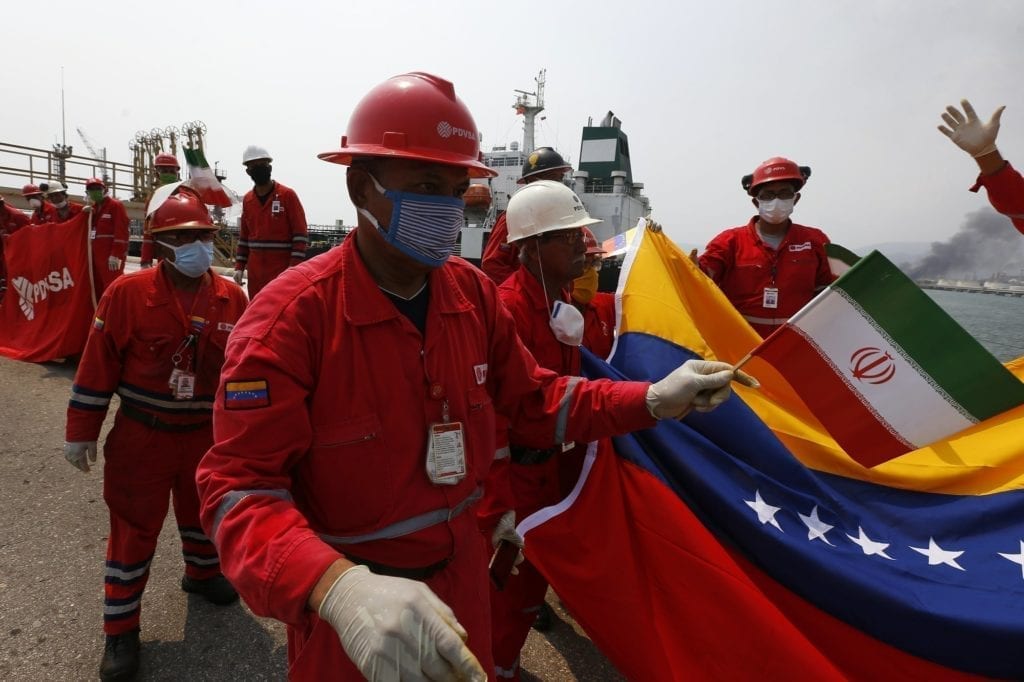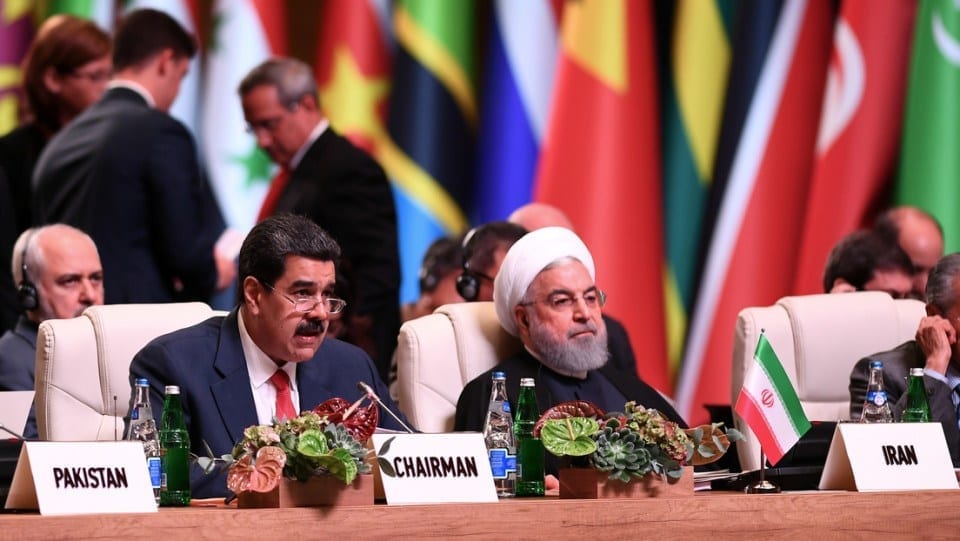Recently, a number of analysts agree that the alliance of countries under Washington’s sanctions has strengthened significantly against the background of a collective search for new approaches. How are relations between Venezuela, Iran and North Korea developing today? What tools are reluctant friends using to get around US sanctions?
The events of recent years have once again been able to demonstrate that US sanctions have allowed for the creation of new alliances. In particular, Washington’s “bans” have united countries such as Iran, the Bolivarian Republic of Venezuela and the DPRK. It is quite logical that in this situation, when access to foreign investment and international technologies is limited, those displaced by sanctions on the periphery countries are experimenting with interaction tools based on their advantages: the DPRK could offer its nuclear and military investigations, the Islamic Republic of Iran – capacities for processing “black gold”, and Venezuela – not only oil reserves, but also a geopolitical trump card – geographic proximity to the US border.
Turning to specific examples of such interaction, it is worth remembering how almost two years ago (February 2019), the government of Nicolas Maduro (Spanish – Nicolás Maduro Moros) did not host a humanitarian food caravan, which, as part of the political crisis in the country, the opponent of the official Caracas Juan Guaidó (Spanish – Juan Gerardo Guaidó Márquez) was trying to the border with Colombia. In turn, Venezuela gratefully accepts food supplies from Iran. Especially during the height of the pandemic, June-July 2020, Iranian ships often arrived to the shores of the Latin American country. Then the essential goods brought from the Middle East made up the assortment of the supermarket chain opened by the Iranians.

In addition, such cooperation is not limited only to food products, experts in the field of the raw materials industry arrive on Iranian ships, whose task is to revive the local oil refining sector, which has entered the “black” strip after nationalization in the 1970s. Today, despite the surplus of crude oil, the Bolivarian Republic is experiencing an acute shortage of refined products, in particular gasoline. Without access to modern technology, blocked by sanctions, Venezuela is struggling to manage its energy wealth.
According to The Wall Street Journal, Venezuela made a deal with the Islamic Republic of Iran. According to the agreements: Iran delivers fuel derived from hydrocarbons, and in exchange the government of the Latin American country sends crude oil to the Middle East. As a result of such an agreement, both states benefit, since local storages of “black gold” are at risk of overfilling, which in the future would entail the conservation of deposits, and this is a problem: it is impossible to resume and launch them later without additional investments. Thus, based on the terms of the deal, Tehran is rewarded with hydrocarbons at a fair price.
Another unspoken participant, the DPRK, has joined such a friendly alliance between Iran and Venezuela. Mutual interest of the parties increased in 2019, when it became clear that the attempt of the US President Donald Trump (Donald John Trump) to come to an agreement with the North Korean head of state Kim Jong-un failed, and the official Caracas opened its embassy in Pyongyang for the first time in history. This step was preceded by the visit of the Speaker of the National Constitutional Assembly of Venezuela Diosdado Cabello (Spanish – Diosdado Cabello Rondón) to the North Korean capital. On the sidelines of the meeting, negotiations took place between the parties, as a result of which strategic agreements were concluded. However, what exactly was discussed during the visit of the Venezuelan speaker to the DPRK is still officially unknown.
As suggested by a number of experts, the DPRK government may well be interested in supplying hydrocarbons at a good price from Venezuela. If this is the case, then Iran can act as a reliable intermediary, receiving crude oil from the Latin American country. Some international media already publish reports on the DPRK’s purchases of fuel from Iran, so there is a possibility that official Caracas is included in this chain.
Considering the terms of such an agreement between North Korea and Venezuela, one should assume that in exchange Pyongyang can offer its military and nuclear developments. The White House believes that Tehran is taking into account the opinion of North Korean experts in developing its officially abandoned nuclear program. Another area of mutual interest may be IT technology and electronic security. The US government has repeatedly accused Iranian and North Korean hackers, linking their activities to attacks on Washington’s strategic resources.
The parliamentary elections in Venezuela on December 6 attracted the attention of American analysts not only for their outcome: with the boycott announced by the opposition, the success of the United Socialist Party (Spanish – Partido Socialista Unido de Venezuela, PSUV) did not raise any doubts. Most favored the supporters of the President Nicolas Maduro. The coalition of his party won about 69% of the vote. Official Caracas managed to secure 253 of the 277 seats in the unicameral legislature of the Bolivarian Republic. Much more unexpected was the fact that the White House suspected Iran’s possible participation in the internal political affairs of this country. According to the US Admiral Craig S. Faller, Tehran quickly deployed its weapons and military to the Caribbean coast. According to this version, if unrest began in Venezuela after the announcement of the results of the Parliamentary elections, Iran could take part in suppressing them.
Today, against the backdrop of the political crisis in the United States associated with the transfer of power, as well as in modern conditions, a number of analysts suggest that a weakening of the sanctions regime could well reduce the degree of tension. Iran and, to a lesser extent, Venezuela admit such a development of events and hope for a softening of the “package of restrictions”. Nevertheless, whether the elected President Joseph Biden (Joseph Robinette Biden) decides to restart relations with the traditional opponents of the White House, the near future will show: the new US administration, like the previous one, does not rule out that it can continue the dialogue in the language of pressure if deems it appropriate.


